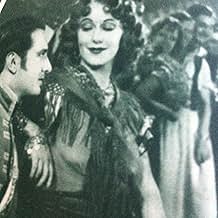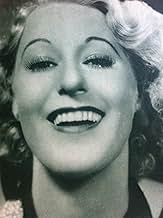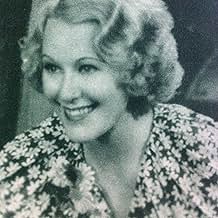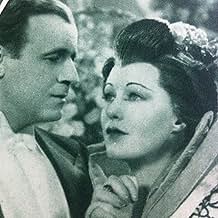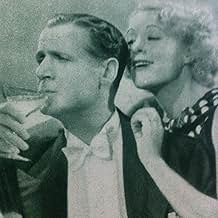Agrega una trama en tu idiomaMary, an aspiring opera singer, trains under famed maestro Guilio Monterverdi. Their professional relationship turns romantic amid hard work and clashes, but jealousy and misunderstandings h... Leer todoMary, an aspiring opera singer, trains under famed maestro Guilio Monterverdi. Their professional relationship turns romantic amid hard work and clashes, but jealousy and misunderstandings hinder their love's expression.Mary, an aspiring opera singer, trains under famed maestro Guilio Monterverdi. Their professional relationship turns romantic amid hard work and clashes, but jealousy and misunderstandings hinder their love's expression.
- Dirección
- Guionistas
- Elenco
- Ganó 2 premios Óscar
- 5 premios ganados y 4 nominaciones en total
- Galuppi
- (as Andres De Segurola)
- Bartender
- (sin créditos)
- Undetermined Role
- (sin créditos)
- Children's Music Teacher
- (sin créditos)
- Radio Judge
- (sin créditos)
- Cafe Owner
- (sin créditos)
- Minor Role
- (sin créditos)
- Stage Manager
- (sin créditos)
- Vegetable Man
- (sin créditos)
- Undetermined Role
- (sin créditos)
Opiniones destacadas
Rather than rehash all that, what I wanted to mention was the naturalness that Moore sometimes brings to her musical performances, a naturalness that makes them very engaging. The most notable case is probably Ciri-ciri-bin, where you can actually imagine the restaurant crowd joining in, so unpretentious is the whole thing. Some of the opera excerpts have that same quality, at least at times.
Some of that comes from Moore's stage personality, which at times does come off as the girl next door. Some of it, however, comes from the fact that her voice, at that point, was rock-solid and capable of remarkable things. In many ways, she was like a female Mario Lanza: she had the raw gift, she just didn't always put in the necessary work to bring it under control. Nevertheless, she goes sailing through some of her numbers with clear joy because she knows the notes will be there.
As I said, there are lots of problems with the movie. At times, her character seems like an interesting feminist willing to sacrifice to have a career. At other times, that all goes out the window.
The music is good here, and some of the performances at least partially captivating. Not a great movie, but one worth watching, at least once.
At the time, Grace Moore got all the attention, as much for her shapely figure and for stepping down from her Metropolitan Opera pedestal as for her actual performance. Playing a soprano who spends her savings to study with a famous maestro in Italy, the 33 year-old Moore seems a bit of a late starter, but bounces around with lots of vivacity. Singing the title song and the inevitable "Ciri-Biri-Bin", she mostly avoids the pearls-before-swine tone of opera singers when they stoop to popular song, although she still sashays [especially as Carmen] and waves her arms too much for modern tastes.
Many decades later, it is clear that much of the charm was supplied by Tullio Carminati, an appealing comic actor with a wry quality, something like an Italian Walter Matthau. As Moore's mentor/romantic interest, he has a kind of offhand sophistication and the expert timing to support Moore's occasionally shaky line readings [of course, she's the one who got the Oscar nomination].
Director Victor Schertzinger soft-pedals the high culture, and manages several Lubitsch/Mamoulian moments: one amusing conceit has a building full of musicians all practicing different instruments in discord, until Moore unites the tunes with her impromptu rendition of "Sempre Libre" from LA TRAVIATA. Another enjoyable sequence presents singing a quartet from LUCIA as a strategy to avoid paying the rent. When the plot enters the tiresome misunderstandings phase, Schertzinger keeps the pace going until the finale, a staging of a scene from MADAME BUTTERFLY.
Throughout, Joseph Walker, Columbia's maestro of camerawork, softly lights Moore to utmost advantage, and even gets in a couple of zoom shots [in 1934!]
The film is your usual backstage story only with an operatic twist. Moore is an aspiring opera singer and as the picture opens she's singing the title tune which became a big hit at a radio station contest. The prize is a scholarship to study in Italy. Believe it or not, Grace Moore doesn't win, but she's determined and with her meager savings she goes to Italy and studies to become a great opera diva.
Along the way she gets involved with two men, voice teacher Tullio Carminati and American expatriate Lyle Talbot. Carminati also has a witch of an ex-pupil/girlfriend he's trying to dump, deliciously played by Mona Barrie.
But this is Miss Grace Moore's film and that's how she is billed here and would be for the rest of her film career. Grace Moore, who's all but forgotten today except for devoted opera fans, conquered four areas of entertainment; recordings, stage, grand opera, and finally film.
She was the best selling classical artist of her day. On Broadway in Irving Berlin's Music Box Revues she introduced several of his standards, most importantly the song Always. Her buxom beauty (she was a full-figured gal before Jane Russell made bra commercials) helped popularize opera for the masses. And after failing with MGM she finally did become a film star with this film.
Moore set off a couple of copycats in Hollywood with her success. 20th Century Fox signed Lily Pons and Paramount inked Gladys Swarthout to film contracts. Both these ladies fine singers that they were, never achieved even the limited success Moore had. The problem with signing opera singers is that you have to have them singing opera to show off their talent. That has a limited appeal and Moore too was finished in Hollywood in four years.
The film is curiously autobiographical in the same way Mario Lanza's That Midnight Kiss is. Moore plays a small town girl who wants to sing opera, just like the real Grace Moore. How often will the public go to see an opera singer, even a great one, play an opera singer? Moore played versions of Mary Barrett for the rest of her film career at Columbia.
Still the original is a tuneful treat. In addition to the title song and several arias, Moore also sings Ciribiribin which was a favorite song always requested at concerts and even at encores of her operatic performances.
¿Sabías que…?
- TriviaThis was the first film to win an Academy Award for Best Music Score (for Louis Silvers) as 1934 was the first year that an Oscar for this category was introduced.
- Citas
Mary Barrett: I have $500 of my own. I'm taking that money and I'm going to Italy to study!
Mr. Barrett - Mary's Father: Italy?
Mary Barrett: Yes!
Mrs. Barrett - Mary's Mother: Why, that place is full of Italians!
- ConexionesFeatured in The Soundman (1950)
- Bandas sonorasOne Night of Love
(1934) (uncredited)
Music by Victor Schertzinger
Lyrics by Gus Kahn
Sung by Grace Moore at a radio contest
Partially sung a cappella by Tullio Carminati twice
Played often in the score
Selecciones populares
- How long is One Night of Love?Con tecnología de Alexa
Detalles
- Fecha de lanzamiento
- País de origen
- Idiomas
- También se conoce como
- Noč ljubezni
- Locaciones de filmación
- Productora
- Ver más créditos de la compañía en IMDbPro
- Tiempo de ejecución1 hora 24 minutos
- Color
- Relación de aspecto
- 1.37 : 1
Contribuir a esta página


